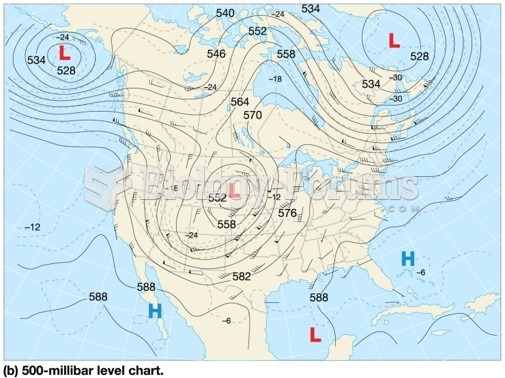Answer to Question 1True
Answer to Question 2(1) Burning fossil fuels to provide energy for transportation and industry produces a large
amount of carbon dioxide. The ocean serves as a natural sink for this excess carbon dioxide.
The CO2 combines with water to become carbonic acid. The additional carbonic acid
produced has made the ocean less alkaline. The surface ocean pH has dropped by about 0.1
units since the industrial revolution began, and it is estimated that it will drop by an
additional 0.3 to 0.5 units by 2100 as the ocean absorbs more anthropogenic (humangenerated)
carbon dioxide.
(2) Increasing acidity decreases the concentration of calcium carbonate in the water, making
it unavailable to organisms for the construction of some hard parts (shells, skeletons, and
rigid coverings).
(3) The oceans extensive, and productive coral reefs are in particular danger from
accelerating ocean acidification. In 2014, the atmospheric concentration of CO2 was about
398 parts per million by volumeat no time in the last 10 million years has the concentration
been so high. Since 1990, the growth of coral in the Australian Barrier Reef has slowed to its
lowest rate in at least 400 years, possibly as a result of the warmer and more acidic ocean.
(4) Additionally, coral skeletons appear to have lost some of their density, and thus are
thinner and more brittle. The ability of coral colonies to withstand wave stress may be
compromised, and their resistance to predation by grazing animals (parrotfish, urchins, and
other gnawing species) lowered. Also, as coral species exert more energy to maintaining
skeletal integrity, cellular resources are diverted from other essential processes such as
reproduction and fighting disease.
(5) Apart from the obvious loss of species diversity and extinctions that a rapid decline in
coral reefs would involve, there are other considerations. People, infrastructure, lagoon and
estuarine ecosystems, mangrove forests, fisheries, aquaculture operations, tourism, sand
generation, bird populations, and a host of other interconnected systems would be negatively
affected.







